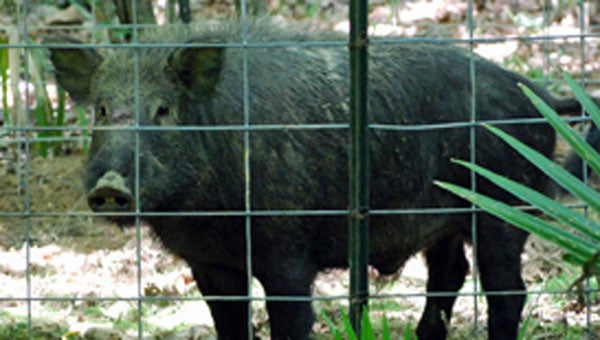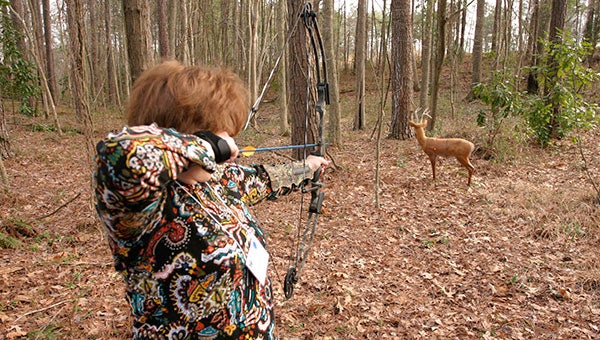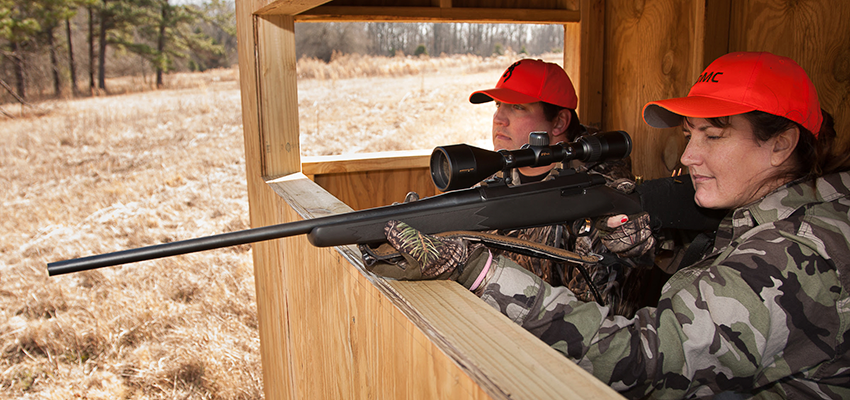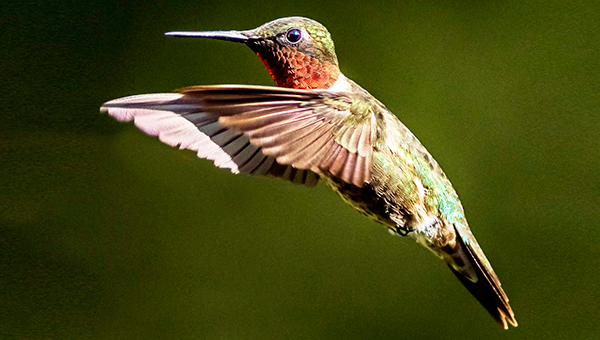Feral hog hunters cautioned about Swine Brucellosis
Published 2:50 pm Monday, March 30, 2015
The popularity of hunting feral hogs in Alabama has increased during the past few years as land managers target these animals to keep the population in check. Because handling harvested hogs brings with it a small chance of contracting swine brucellosis, officials with the Alabama Department of Conservation and Natural Resources are reminding hunters to protect themselves when field dressing the animal.
Swine brucellosis, an infectious disease of pigs, is caused by the bacterium Brucella suis. Humans can contract swine brucellosis if blood, fluid or tissue from an infected animal comes into contact with the eyes, nose, mouth or a skin cut. Swine brucellosis does not affect the edibility of the meat, but it should be thoroughly cooked.
The Centers for Disease Control and Prevention recommends the following precautions when field dressing feral hogs:
• Use clean, sharp knives for field dressing and butchering.
• Wear eye protection and rubber or latex gloves when handling carcasses.
• Avoid direct contact of bare skin with fluid or organs from the animal.
• After butchering, burn or bury disposable gloves and parts of the carcass that will not be eaten.
• Avoid feeding raw meat or other parts of the carcass to dogs.
• Wash hands as soon as possible with soap and warm water for 20 seconds or more. Dry hands with a clean cloth.
• Clean all tools and reusable gloves with a disinfectant, such as diluted bleach.
• Thoroughly cook the meat.
• Be aware that freezing, smoking, drying and pickling do not kill the bacteria that cause brucellosis.
“This caution is not meant to keep anyone from killing feral hogs,” said Wildlife and Freshwater Fisheries Director Chuck Sykes. “We just want to remind hunters that preventive measures should be standard when handling hogs.”
Because swine brucellosis can have a long incubation time, immediate symptoms may not be present. Although few humans die of infection, the disease is often chronic and debilitating. If a hunter gets sick with flu-like symptoms, remember to inform the doctor of any contact with a feral hog.
Feral hogs are a threat to wildlife because they compete for food sources, damage wildlife openings and habitat, and destroy nests. Because hogs can transfer brucellosis, the potential threat to human health is a very important reason hogs should not be released in the state. Transporting live feral hogs from one property to another is illegal in Alabama.
The Alabama Department of Conservation and Natural Resources promotes wise stewardship, management and enjoyment of Alabama’s natural resources through four divisions: Marine Resources, State Lands, State Parks, and Wildlife and Freshwater Fisheries. To learn more about ADCNR, visit www.outdooralabama.com.





